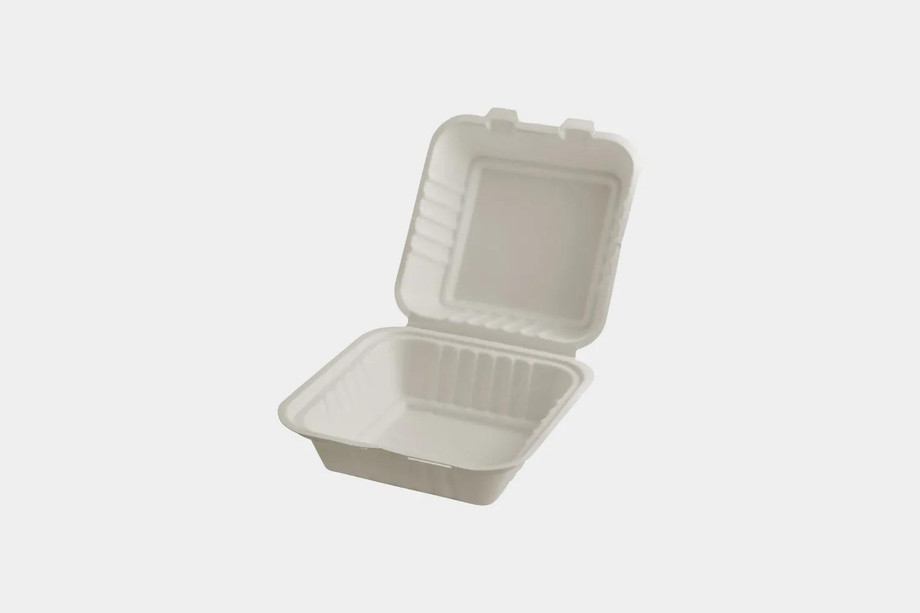With growing global awareness about environmental issues, the push for sustainable practices has become essential in every industry. One significant shift is the replacement of traditional plastic containers with biodegradable food containers. Made from renewable resources, these containers not only reduce waste but also support a healthier planet. Here, we explore the key environmental benefits of making the switch to biodegradable food containers.
Reducing Plastic Pollution
One of the primary benefits of biodegradable food containers is the reduction of plastic waste, a major pollutant in our ecosystems. Conventional plastic containers can take hundreds of years to decompose, often polluting soil, water, and marine environments in the meantime. Biodegradable food containers, however, are designed to break down more rapidly—often within a few months under the right conditions. This helps reduce the buildup of waste in landfills and oceans, promoting cleaner environments.
Lowering Carbon Emissions
The production of plastic containers is a resource-intensive process, heavily reliant on fossil fuels that contribute to greenhouse gas emissions. In contrast, biodegradable containers are typically made from plant-based materials, like bagasse, cornstarch, and other renewable resources. The process of creating these materials emits fewer carbon emissions and requires less energy, lowering the overall environmental impact. Choosing biodegradable options can thus help decrease a business’s carbon footprint.
Protecting Marine Life
Plastic waste in the ocean is an escalating threat to marine animals, which often mistake plastics for food. When ingested, plastics can lead to serious health issues for marine life, impacting biodiversity. Biodegradable food containers decompose naturally without releasing toxins into the environment, reducing the risk for aquatic ecosystems. By adopting biodegradable containers, companies contribute to preserving marine habitats and protecting marine species from harm.
Supporting Sustainable Agriculture and Resource Use
Many biodegradable food containers are made from byproducts of other industries, such as sugarcane pulp (bagasse) and corn husks. By utilizing agricultural byproducts, these containers support sustainable resource use, reducing waste from crop production and repurposing it into packaging materials. This promotes a circular economy, where resources are reused and repurposed, helping to create a more sustainable food and packaging industry.
Enhancing Soil Health in Landfills
Unlike plastics that persist for centuries, biodegradable containers break down relatively quickly when disposed of in landfills, enriching the soil rather than polluting it. The organic matter left behind after decomposition can improve soil structure, help retain moisture, and boost nutrient content. This contributes to healthier soils, supporting plant life and reducing landfill-related environmental damage.
Promoting a Positive Brand Image
Today’s consumers are increasingly eco-conscious, choosing brands that demonstrate a commitment to sustainable practices. Switching to biodegradable food containers allows businesses to attract these environmentally aware consumers and showcase their dedication to eco-friendly operations. A green brand image is not only appealing to customers but also boosts loyalty, setting a business apart from competitors in the market.
Encouraging a Shift Toward Industry Sustainability
As more companies make the switch to biodegradable food containers, they contribute to an industry-wide shift toward sustainability. By setting an example, these businesses encourage other companies to adopt similar practices, creating a positive chain reaction throughout supply chains. This industry transformation brings us closer to achieving large-scale environmental goals, where every step counts toward a more sustainable future.
Contributing to Climate Change Mitigation
By choosing biodegradable containers over plastic, businesses can play a role in climate change mitigation. Biodegradable materials decompose without releasing as much methane or carbon dioxide as plastics, which are known to emit greenhouse gases throughout their lifecycle. This reduces the overall climate impact of food packaging, helping to curb global warming and contribute to a healthier planet.
Conclusion
Switching to biodegradable food containers may seem like a small change, but it carries far-reaching benefits for the environment. From reducing plastic waste and protecting marine life to enhancing soil health and supporting sustainable agriculture, biodegradable containers offer a more eco-friendly packaging solution. By embracing these containers, businesses not only contribute to a healthier planet but also build a positive, eco-conscious brand that resonates with today’s consumers.

